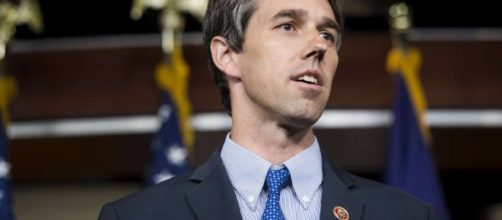Sen. Ted Cruz, R-Texas has drawn his first opponent for his bid to run for a second term in the Senate, according to the Houston Chronicle. His name is Rep. Beto O’Rourke, R-Texas, who has an unusual resume, to say the least. While in college O’Rourke played in several punk rock bands. He won his House seat in 2012 by unexpectedly beating the preferred Democratic candidate, Silvestre Reyes, the incumbent in a primary upset. He has since bucked the Democratic leadership in the House, declining to vote for Nancy Pelosi as party leader for example.
On most issues, O’Rourke is decidedly on the left, hewing to an open borders stance as opposed to Cruz’s immigration hawkishness. He also proposed a special “war tax” to pay for veteran’s care programs. He is, however, well liked by his fellow members of Congress of both parties.
That O’Rourke starts as an underdog is to put the matter mildly. First, he is not likely to be the only Democrat running for the Senate in 2018. Julian Castro, the former Secretary of Housing and Urban Development, is said to have senatorial ambitions and has more of a national following and is more of a party man than is O’Rourke.
Then the congressman would have to face Cruz, an influential, national figure with deep support inside Texas and access to lots of cash.
Despite the hope over experience analysis by some in the media, Texas remains a deeply red state where no Democrat has won statewide since 1994. Despite talk of “changing demographics” that phenomenon has not translated into support for Democrats in the Lone Star State.
Democrats also have to defend 25 Senate seats in 2018, at least 10 of which are very vulnerable. It is not likely that the national party is going to give much support to a quixotic campaign to knock off Ted Cruz.
Cruz’s run for the presidency last year did not end well for him and resulted in lots of acrimony between himself and President Donald Trump. But that rift seems to have been repaired, for the most part, so that Cruz will likely get warm support from the president, if only from the politically practical reasons for retaining and expanding control of the Senate.

